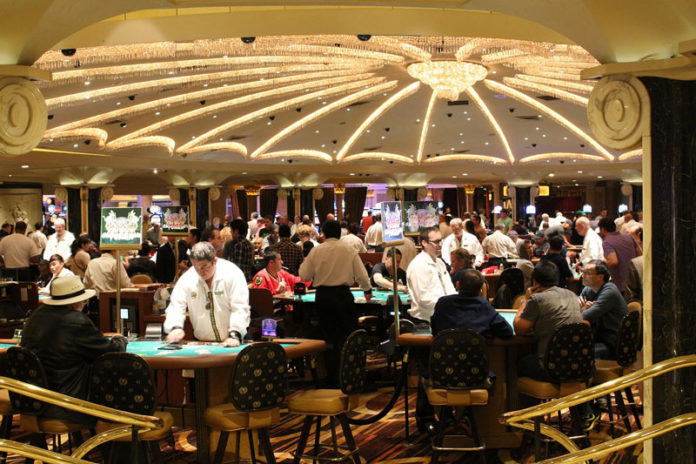
Published in cooperation between GilroyDispatch.com and the thegamehaus.com
Social casinos are gaining momentum as a preferred alternative to traditional online gambling. These platforms mimic the look and feel of standard casinos but use virtual currency. They allow users to play without risking real money. This approach aligns with a broader change in digital gaming, where users value social connection and light competition more than the pursuit of financial gain.
Understanding the Appeal of Social Casinos
Social casinos simulate the structure of real gambling platforms but remove the element of real-money betting. They typically offer games such as poker, blackjack, roulette and slot machines using coins or chips that can be replenished through daily bonuses or optional purchases. These platforms have found a strong following among players who want a familiar gaming format without financial stakes or pressure. In particular, they appeal to people who are curious about the format of casino games but are reluctant to engage in actual gambling.
What sets social casinos apart is their emphasis on community and interaction. Features like leaderboards, gifting and the ability to compete with or against friends help create a more communal experience. These games are integrated with major social media platforms or come with built-in friend systems.
Cryptocurrencies have started to play an important role in the format and payment dynamics of some online casinos. For players who prioritize speed, privacy and minimal fees, using digital currencies makes transactions simpler. This is especially evident on best ranked platforms like Roobet and Stake, where both deposits and withdrawals using crypto are processed faster than traditional banking options. These platforms highlight how cryptocurrency adoption can reduce friction in the user experience without changing the nature of the gameplay (Source: https://www.gamechampions.com/jp/reviews/online-casino/crypto/).
Demographic and Market Growth
The growing popularity of social casinos is also reflected in demographics of their user base. Once popular primarily among middle-aged users, these platforms are now attracting different audiences. Many are already familiar with free-to-play mobile games, so the format of social casinos feels natural. It allows them to explore a new genre of gameplay while staying within a model they’re already comfortable using.
The market growth in this segment has been steady. Analysts estimate that the social casino industry will continue to expand over the next several years, fueled by improvements in mobile technology and more accessible internet infrastructure. This upward trend is further supported by the rising number of game developers entering the space. The result is a more diverse range of games that appeal to different types of players, from casual participants to more competitive users.
Technological Innovations Enhancing User Experience
Innovation in technology has played a major role in the development of social casinos. These platforms are incorporating live multiplayer modes and limited-time challenges. They encourage repeated logins and more active engagement. Some now include avatars and leveling systems, features traditionally associated with role-playing games. These additions provide long-term goals for users.
Artificial intelligence and machine learning are also being used to shape user experience. These tools allow platforms to tailor game suggestions, difficulty levels and promotional features based on individual behavior patterns. Such personalization supports higher engagement without introducing real-money stakes. The aim is to keep them relevant to the user’s preferences, not to make the games harder to encourage spending. This balance helps ensure that the games remain fair and accessible, regardless of a player’s spending habits.
Regulatory Considerations and Accessibility
One of the primary reasons social casinos are growing quickly is their ability to operate in jurisdictions where traditional gambling is heavily restricted or prohibited. Because no actual money is wagered, these platforms are generally classified as games rather than gambling. This classification means they are often free from the regulations and oversight that govern real-money casinos. As a result, they can be marketed and distributed more widely, reaching users in many different regions.
At the same time, developers and operators are expected to remain aware of user safety. These games don’t involve real money but many do offer in-app purchases. Regulators in some countries are starting to evaluate how these purchases affect player behavior, especially when rewards simulate the outcomes of gambling. Responsible design is becoming more important, with developers urged to disclose odds clearly and avoid mechanics that could be misleading or manipulative.
New Formats Reflect Changing Player Habits
Social casinos offer an alternative for users who enjoy structured games but prefer not to wager real money. User preferences lean toward more casual, time-flexible formats and these platforms respond by offering structured yet adaptable play environments. The growing variety of game styles, cross-platform functionality and socially driven features suggests that the appeal of social casinos is rooted in offering a distinct format that meets changing user expectations.














